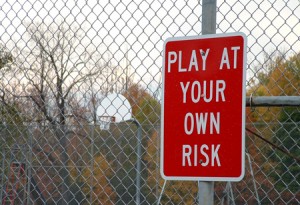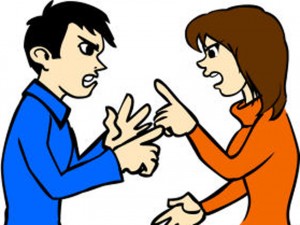The latest Autism Study of the Month is about the likelihood of a younger sibling having Autism when there is already a child in the family with Autism.
I had already discussed how important it is to make family decisions with your heart, not your fears… and how there is always some risk no matter what, even for your first child.
But seeing Google News explode with story after story about it… approx 700 at the time of this writing… I have a new concern.
 Spreading Information or Paranoia
Spreading Information or Paranoia
At 700 articles, I have to wonder just what message it is that is being sent.
Most studies are negative in nature, focusing on what may be increasing the risks of Autism, but in this case, it’s outright telling people that their next born child will likely be Autistic.
With headlines such as “Parents with one autistic child more likely to have another”, is it really any wonder what the message is?
These studies are important because it brings experts a little step closer to finding real answers but in the general public and in the media, it’s a tool for fear and paranoia.
How many parents will these 700 articles reach?
How many of those parents will make a conscious decision to not have another child based on this study?
How many parents will have their family forever impacted by fear?
The Result of Fear
So you’ve decided to cut your family short for fear of having a child with Autism… let’s discuss:
- The study found an 18.7% chance of having a child with Autism when you already have a child with Autism. That means that you have an 81.3% chance of having a child without Autism.
- Is the child you already have beautiful? Amazing? Wonderful? Your next child will be as well.
- If you only have one child, will you be improving that child’s life or robbing them of a loved one that they can love, cherish, grow with, protect and depend on?
- Would your child have had the potential to be brilliant? A leader? Inspirational? An artist? A parent?
Lost Potential
I’m not trying to tell you that you have to have another child. If you were already debating/discussing it prior to this or other studies, that’s perfectly understandable. My wife and I did the same thing.
But basing these decisions on the fears created by studies in the news saddens me.
I can’t help but think of the lives that will never be lived, due to fear. The people that could have been presidents, doctors, teachers, parents or even, if they did turn out to have Autism, would have been beautiful people regardless of the titles they could or could not obtain.
My child with Autism is wonderful, he’s amazing! Why would I choose to not have another child when I have such a beautiful life growing before my eyes?
Children, all children, with or without Autism, have limitless potential. Even those that are non-verbal can sometimes surprise you. You just never know what can happen.
Let’s Talk Odds
Since we’re discussing odds, let’s look at some other odds for you and your children:
- Odds of being the victim of serious crime in your lifetime: 20 to 1
- Odds of having your identity stolen: 200 to 1
- Odds of dating a millionaire: 215 to 1
- Odds of finding out your child is a genius: 250 to 1
- Odds of being considered possessed by Satan: 7,000 to 1
- Odds of becoming a pro athlete: 22,000 to 1
- Odds of winning an Academy Award: 11,500 to 1
- Odds of becoming president: 10,000,000 to 1
These are some great reasons to be living in fear, to be living a goal, to be optimistic, to be pessimistic and simply… to be alive.
You can’t beat the odds every time, you won’t be a victim of the odds every time either.
The point is to live your life, to enjoy your life and to do with your life what you can while you can.
Don’t snuff out the potential of your children before they ever even have the opportunity to be conceived.
If you want another child, if you want to fill your family, if you want our child to have a younger sibling… do it.
Do not replace potential with fear.













